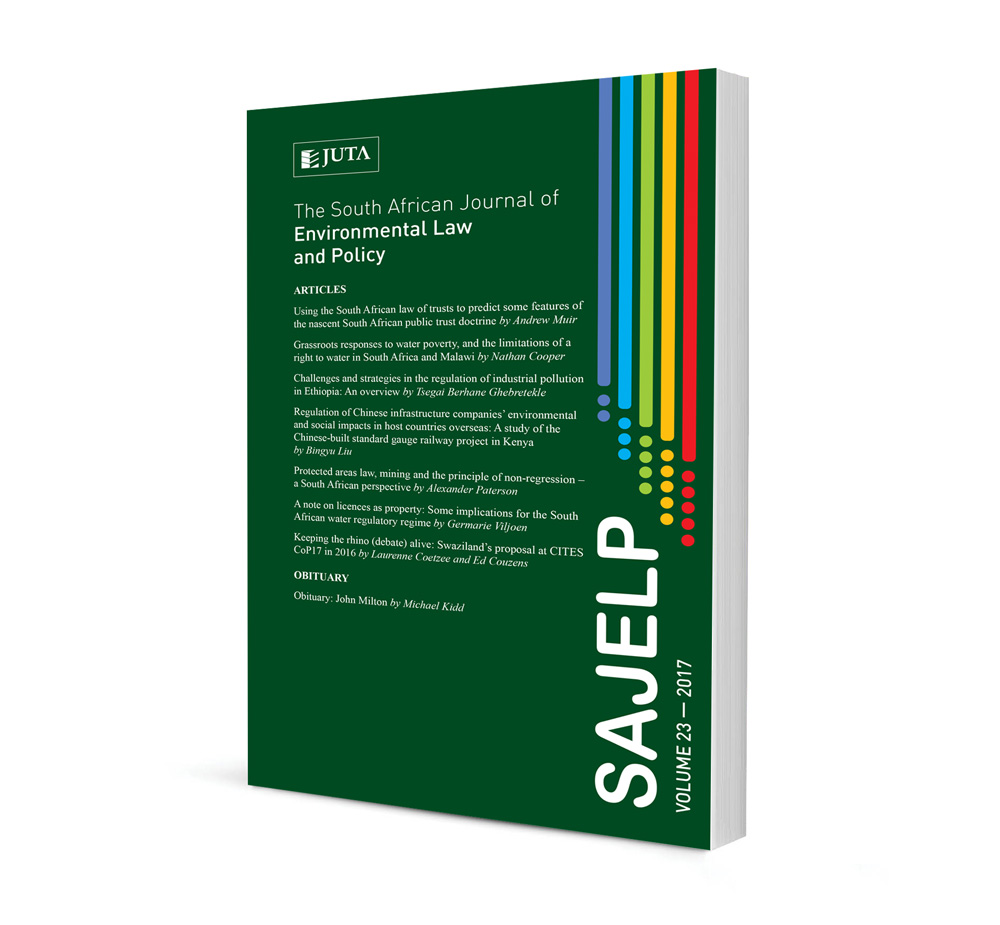The Baboon Behaved Impeccably’: Animal rights and welfare in South Africa, some recent foreign judgments, and the case of Macrae v State [SCA, 2014]

The Baboon Behaved Impeccably’: Animal rights and welfare in South Africa, some recent foreign judgments, and the case of Macrae v State [SCA, 2014]
Authors Ed Couzens, Adrian Bellengère, Meda Couzens, Devarasi Bellengère
ISSN: 2616-8499
Affiliations: Associate Professor, Sydney Law School, University of Sydney; Senior Lecturer, School of Law, University of KwaZulu-Natal; Honorary Research Fellow, School of Law, University of KwaZulu-Natal; Lecturer, School of Law, University of KwaZulu-Natal
Source: South African Journal of Environmental Law and Policy 2016, p. 239 – 269
Abstract
None